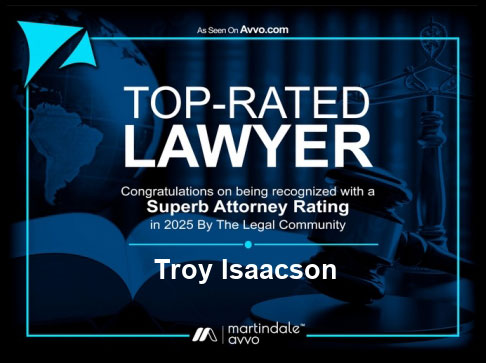ISAACSON LAW BLOG
Received A Fair Housing Discrimination Complaint From HUD – Now What?

What Should Our HOA Do after Receiving A Fair Housing Discrimination Complaint from HUD?
It can be more common than you might think for a conscientious, well-structured, and functioning HOA to have a complaint alleging discrimination filed against it with the United States Department of Housing and Urban Development (“HUD”) under the Fair Housing Act (“FH Act”). Individuals residing within common-interest communities can file, whether they are owners or tenants. All they have to believe is that a discriminatory act or conduct has occurred. Complaints are submitted to and handled by the Office of Fair Housing and Equal Opportunity (“OFHEO”). Such complaints will often allege that an individual, a manager, and/or the Board of an HOA have engaged in discriminatory housing practices under the FH Act (42 U.S.C. Section 3601-3619). Complaints can be directed at any individual who may have dealt with that person in an alleged discriminatory manner. In fact, our office has even seen complaints directed at management company receptionists and administrative assistants.
The Background of the FH Act
The mission of the Fair Housing Act is to eliminate discrimination in housing opportunities and processes and to promote economic opportunity and to achieve diverse, inclusive communities by leading the nation in the enforcement, administration, development, and public understanding of federal fair housing policies and laws. The Office of Fair Housing and Equal Opportunity enforces Fair Housing laws to protect people from discrimination on the basis of race, color, religion, sex, national origin, disability, sexual orientation, and familial status. In addition, OFHEO ensures fair housing compliance by housing providers that receive HUD funding.
In 2017, the most-recent report currently available, HUD, along with its partner Fair Housing Assistance Program (“FHAP”), received 8,186 complaints. And of those 7,985 were investigated and $8,907,003 was obtained in monetary relief in housing discrimination cases. Of those, 64 complaints were filed in the State of Nevada. The majority of cases filed with HUD (59.4%), alleged discrimination based upon a disability, followed by discrimination due to race (26%) and familial status (10.6%). Of those complaints filed in 2017, 528 (33.8%) were resolved by conciliation. Another 574 (36.7%) resulted in findings of “no cause” and 284 (18.2%) were administratively closed. However, 19 (1.2%) were charged with a finding of discrimination. Though the vast majority of complaints do not result in formal charges, they can cost communities thousands of dollars in expenses and suffer an enduring hardship as complaints can often take several months and significantly more time to resolve.
The Fair Housing Complaint Procedure
Anyone can file a complaint on their own behalf. HUD then has 10 days to serve the complaint via U.S. mail upon the defendant. HUD complaints often name individual community-association managers, board members, property managers, landlords or other individuals personally, as well as any corporate entities involved in the housing relationship. The respondents then have 10 days to submit answers. However, HUD is flexible at working with parties and their counsels to allow more time to gather information and to respond if requested for such in a timely manner.
HUD investigators will typically request documents and conduct interviews by phone with the parties and anyone else they believe may have information abouts the matters. In the majority of cases HUD investigators attempt to conciliate (resolve) the matters. When cases are not settled or dismissed and a charge is issued, it proceeds to an administrative law judge, unless either side requests that it be heard in a U.S. District Court. Most respondents opt for District Court and in 2017 there were 17 cases sent to District Court.
Tips for Responding
Our law office has recently dealt with complaints involving companionship animals and requests for accessible parking spots and wheelchair ramps, to name a few. HUD aggressively investigated matters and reviewed nearly every complaint to ensure no housing laws were being broken. Our recommendation was and is to be open and honest with HUD investigators. If information is hidden or not otherwise revealed in response to a request, it can lead to a charge of discrimination. We further recommend remaining in contact with the HUD investigator throughout the process, so they know you are actively attentive and not seeking to only delay the matter.
What about Insurance?
When presented with a claim, we encourage associations and managers to tender it to their community’s insurance providers as coverage may exist and be available. Though communities are often concerned about an increase in the cost of premiums, if the insurance company retains counsel to represent you and/or your community, that alone might save your community or office tens of thousands of dollars.
Be Open to Conciliation throughout the Process
HUD investigators typically look for opportunities to resolve matters through conciliation. And, generally speaking, HUD will not dismiss a complaint before making an attempt to conciliate. You can never be certain what recommendation the investigator might make to their management, so it is not uncommon for respondents to enter into a conciliation agreement to avoid a potential finding that a reasonable basis exists to believe discriminatory conduct occurred. Ultimately, of course, if the facts are clear, you and/or your community can take your chances and insist on moving toward a finding. Two things to note about most conciliation agreements. Firstly, you and/or your community will typically remain under HUD’s oversight for at least a year following signing of the conciliation agreement. If there is reasonable cause to believe that a respondent has engaged in further discriminatory conduct, the matter may be referred to the United States Attorney General to seek compliant and any appropriate sanctions in a Federal District Court. This can also result in a higher monetary penalty. Secondly, HUD often requires that respondents engage in at least three hours of live training on fair housing and reasonable accommodations provided by an accredited and approved fair housing agency.
Know the Process, Your Rights, and Seek the Help of a Qualified Attorney
When faced with a claim of discrimination, you should understand that navigating HUD complaints takes time and patience. It is unproductive to get emotional about being accused of fair housing discrimination when sometimes it is simply part of doing business in a common-interest community. Having an experienced attorney can make a big difference in the outcome of a complaint. Isaacson Law works closely with its clients who need assistance, learning everything about the situation and working diligently to protect their rights.

LOCATION
- (702) 529-2559
- 4730 S. Fort Apache Rd, Suite 280 Las Vegas, Nevada 89147
BUSINESS HOURS
Monday – Friday: 8:30am to 5:30pm
Recent Blog Posts

Legislative Session 4-20-25

Legislative Session 3/15/25



